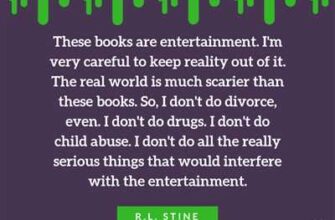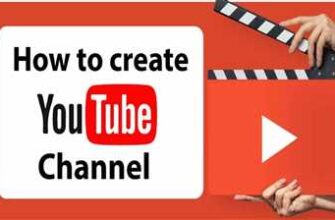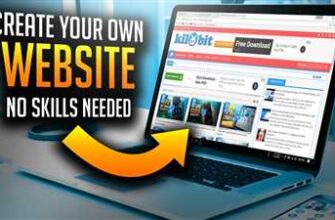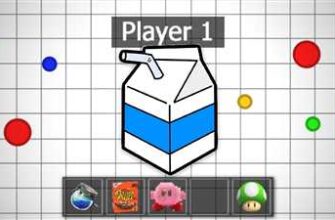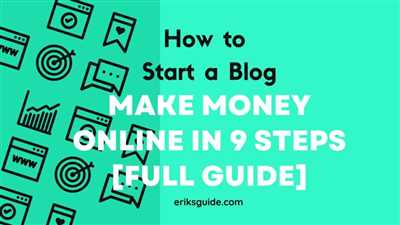
Are you looking to establish a fresh and successful blog? Starting a blog can be an exciting and rewarding step that opens up a world of opportunities for you to express yourself creatively, share valuable content, and even monetize your platform. However, it’s important to follow a few key steps to ensure that your blog resonates with readers and stands the test of time.
The first step in building a successful blog is choosing a domain and a hosting provider. Your domain will be the unique web address that your blog is associated with, while the hosting provider will manage the technical aspects of keeping your blog online and accessible to readers. Take the time to choose a domain that reflects the topics you plan to cover and is easy for readers to remember.
Once you have your domain and hosting in place, the next step is to choose a blogging platform. There are many platforms available, each offering different features and customization options. Some popular options include WordPress, Blogger, and Strikingly. Consider your needs and the level of customization you’d like to have, as well as the ease of use for managing and editing your blog’s content.
With your platform chosen, it’s time to start creating valuable and engaging content that will keep readers coming back for more. A successful blog needs to offer readers something they can’t find elsewhere, whether it’s in-depth guides, personal stories, or expert advice. Consider your target audience and the topics that are most important to them, and create content that is relevant, well-researched, and well-written.
Managing a blog also involves dealing with other elements and challenges, such as editorial guidelines, traffic generation, and dealing with trolls or negative comments. It’s important to establish editorial guidelines that outline the tone, style, and topics that your blog will cover. This will help you stay focused and ensure that your content remains consistent with your brand and resonates with your readers.
Generating traffic to your blog is another important aspect of blogging. There are various marketing practices that can help you achieve this, such as search engine optimization (SEO), social media promotion, and building relationships with influencers in your industry. These strategies can help increase your blog’s visibility and attract more readers.
Dealing with trolls or negative comments is also a reality for many bloggers. While it’s important to ensure that your blog is a safe and positive place for your readers, it’s also important not to let negative feedback discourage you. Use negative comments as an opportunity for improvement and further growth, and remember to always handle them with professionalism and respect.
Ultimately, starting a blog is a journey that requires consistent effort and dedication. It’s important to stay true to your vision and voice, while also being open to change and improvement. With the right steps and practices in place, you can establish a successful blog that will resonate with readers and open up new opportunities for you.
The Modern Day Guide on How to Start a Blog
Starting a blog in 2021 opens up great opportunities to creatively express yourself, build a personal brand, and connect with others who share your interests. Whether you’re a business owner looking to increase traffic and brand awareness or a writer looking to improve your skills, a blog can be a valuable tool.
Before you dive into the process of choosing a topic and creating engaging content, it’s essential to identify your goals and target audience. Researching popular topics and following other successful bloggers can help you understand the needs and interests of your potential readers.
A clear and thoughtfully designed editorial calendar will keep you organized and ensure that you’re consistently publishing high-quality content. Staying true to your brand and maintaining a personal voice will help your blog stand out from the crowd.
When it comes to building a successful blog, managing SEO practices and optimizing meta tags are crucial for attracting organic traffic from search engines. Strikingly, keeping your URLs and anchor text relevant and using internal and external links can also help improve your blog’s visibility.
While the process of starting a blog may seem overwhelming at first, there are many valuable resources and tips available to help you along the way. From choosing the right platform to building relationships with other bloggers and companies, there’s always room for improvement.
It’s important to remember that the blogosphere is constantly changing, so staying up to date with the latest trends and marketing strategies is necessary for long-term success. Social media can also be a valuable source for increasing blog traffic and engaging with your audience.
Starting a blog is not only a medium to express yourself but also an opportunity to learn and grow. It may take time to see tangible results, but with patience, dedication, and a clear purpose, you can create a successful blog that resonates with readers.
So, whether you’re a seasoned writer or starting from scratch, now is the perfect time to dive into the world of blogging. Start by choosing a topic that you’re passionate about and follow these tips to begin the exciting journey of building your own blog!
How to Start a Blog in 7 Quick Steps
If you want to start a blog and become part of a thriving online community, there are some quick and easy steps to follow. Whether you’re a seasoned blogger or just starting out, these steps will guide you through the process of creating your own successful blog.
Step 1: Choose a Blogging Platform
The first step is to choose a blogging platform that suits your needs. There are many different platforms available, each with its own features and customization options. Some popular platforms include WordPress, Blogger, and Wix.
Step 2: Pick a Domain Name
Once you’ve chosen a platform, you’ll need to select a domain name for your blog. This is the web address where your blog will be located. Choose a name that is creative, catchy, and easy to remember.
Step 3: Design and Customize Your Blog
After choosing a domain name, you can start designing and customizing your blog. Many blogging platforms have built-in themes and templates that you can choose from. You can also hire a web designer or use a website builder to create a unique design that reflects your brand.
Step 4: Set up a Content Calendar
To stay organized and keep your blog on track, it’s important to create a content calendar. This will allow you to plan your blog posts in advance and stay consistent with your publishing schedule. Use a calendar tool or a spreadsheet to map out your content topics and due dates.
Step 5: Start Writing and Publishing
With your blog set up and your content calendar in place, it’s time to start writing and publishing your blog posts. Focus on topics that resonate with your target audience and express your unique perspective. Be consistent in your writing and always strive for quality content that will keep your readers engaged.
Step 6: Promote Your Blog
Once you have published your blog posts, it’s important to promote them and attract readers. Use social media platforms, email marketing, and other marketing practices to drive traffic to your blog. Engage with your audience and encourage them to share your content with others.
Step 7: Continuously Improve and Stay Positive
Finally, as a blogger, it’s essential to continuously improve your skills and stay positive. Stay updated with the latest blogging trends and techniques. Research and learn from other successful bloggers in your field. Be open to feedback and make improvements along the way.
Starting a blog may seem like a daunting task, but by following these 7 quick steps, you can easily get started on your blogging journey. Remember, creating valuable content and building a loyal readership takes time and effort, so be patient and consistent in your blogging efforts. Good luck!
Overview of Blogging Platforms
When it comes to starting a blog online, there are a plethora of options available that can help you establish yourself as a successful blogger. Choosing the right blogging platform is the first and essential step in this process. In this section, we will provide you with an overview of some popular blogging platforms to consider.
1. WordPress: WordPress is one of the most widely used blogging platforms and for good reason. It offers a user-friendly interface, a vast collection of themes and plugins, and excellent technical support. Whether you’re a beginner or an experienced blogger, WordPress has everything you need to design and manage your blog effectively.
2. Blogger: If you’re looking for a simple and free platform to start sharing your thoughts and ideas, Blogger by Google is a great option. It doesn’t require any technical knowledge and allows you to host your blog for free. However, keep in mind that its customization options may be more limited compared to other platforms.
3. Medium: Medium is a popular platform for writers and bloggers who focus more on sharing valuable content rather than building a personal brand. It provides a clean and distraction-free environment for writing, and it has a built-in audience of readers who are actively looking for interesting articles to read. While Medium doesn’t allow you to monetize your blog directly, it can be a great place to establish yourself as an expert in your field.
4. Ghost: Ghost is an open-source blogging platform that is gaining popularity among bloggers and companies alike. It offers a simple and elegant interface with a focus on writing and content creation. Ghost also provides built-in SEO features and allows for easy integration with other tools and technologies.
Before choosing a platform, it’s always a good idea to do some research and ask yourself a few questions. What are your goals for your blog? Do you need a custom domain or are you fine with a subdomain? Do you plan on monetizing your blog? These are just a few areas to consider.
Moreover, keep in mind that the blogging world is constantly evolving, and new platforms may arise. It’s important to stay up-to-date with the latest trends and technologies to ensure your blog stays relevant. Remember, the right platform is the one that resonates with you and allows you to express your thoughts and creativity in the best possible way.
Now that you have an overview of some popular blogging platforms, it’s time to take the next steps: brainstorm topics, create a content calendar, choose striking themes, ensure proper hosting, and start promoting your blog. By following these tips and always keeping your readers in mind, you’ll be well on your way to building a successful blog in 2021 and beyond.
WordPress
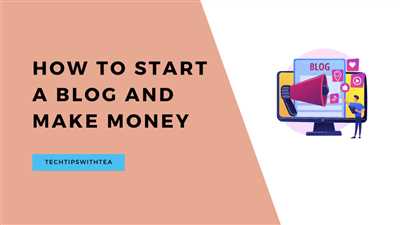
When it comes to starting a blog online, WordPress is one of the most popular platforms to consider. WordPress is a content management system (CMS) that simplifies the process of creating and managing a website or blog.
One of the main advantages of WordPress is its vast readership and community. With millions of bloggers using WordPress, it becomes easier to draw traffic and build a loyal readership. Additionally, WordPress offers a wide range of tools and plugins that can help bloggers achieve their specific goals, such as increasing traffic, promoting their brand, or monetizing their blog.
However, there are some drawbacks to using WordPress. One of the main drawbacks is the learning curve for beginners. Without the right practices and steps, setting up a WordPress blog can be time-consuming and confusing. Thankfully, WordPress.org provides a quick and simple process to get started, with clear instructions and tutorials to guide beginners.
Choosing the right WordPress theme is also important for branding and attracting readers. There are many free and premium themes available that offer different customization options. It’s essential to choose a theme that reflects the blogger’s personality and style, and that also aligns with the type of content they plan to create.
WordPress also provides a built-in editor that allows bloggers to easily create and edit their content without the need for coding knowledge. This makes it easier for bloggers to focus on their writing and creative process without getting overwhelmed by technical aspects.
In terms of promoting a WordPress blog, bloggers can take advantage of various marketing techniques and strategies. This includes sharing their content on social media, engaging with influencers or other bloggers in their field, and using SEO practices to improve their visibility in search engines.
Additionally, WordPress has a large and active community, which can be a valuable resource for bloggers. The WordPress community offers support, advice, and guidance on various topics, such as managing plugins, handling trolls or negative comments, and keeping up with the latest technologies and best practices.
In summary, WordPress is a great platform for beginners and experienced bloggers alike. It offers a user-friendly interface, a wide range of customization options, and a supportive community. By following the essential steps and practices, bloggers can create a successful and engaging blog that attracts readers and achieves their goals.
Blogger
When starting a blog, one of the most important decisions you’ll need to make is choosing the platform that best fits your needs. One popular option is Blogger, which is a user-friendly platform that doesn’t require much technical know-how to get started.
One of the benefits of using Blogger is that it is open and customizable, allowing you to ensure that your blog reflects your personal style and branding. With its easy customization options, you can handle tasks like domain mapping, adding widgets, and changing your blog’s design to make it more unique.
Blogger also has a built-in editorial calendar, which helps you stay organized and keep track of your content. This is important because having a regular publishing schedule and staying on topic are crucial for building a readership and staying engaged with your audience.
When it comes to content creation, Blogger makes it easy to create fresh and engaging posts. Its simple editor allows you to format text, add images, and embed videos, making it a great platform for sharing valuable information with your readers.
Furthermore, Blogger has many sharing options, which allows you to easily promote your blog and increase your readership. You can share your posts on social media platforms and include links in your email newsletters to further expand your reach.
While Blogger is a great platform for starting your blogging journey, it’s important to note that it doesn’t offer as much customization and advanced features as other platforms, like WordPress. However, if you’re a beginner or someone who wants a simple and user-friendly interface, Blogger is a strikingly suitable choice.
To achieve a successful blog on Blogger, it’s important to identify your target audience and brainstorm relevant topics that will resonate with them. Building a strong readership will be a process, but by sharing valuable content and engaging with your audience, you can steadily improve and grow.
Another strikingly valuable aspect of Blogger is its content management and organization. It has features that help you keep track of your posts, allowing you to easily find and edit them when needed. This is especially helpful when dealing with large amounts of content or when you have multiple authors contributing to your blog.
In addition, Blogger provides built-in SEO tools that can help optimize your blog for search engines. This ensures that your blog stays visible and attracts organic traffic, helping to increase your readership and improve your blog’s overall performance.
Overall, Blogger is a user-friendly platform that provides a great starting point for anyone looking to start a blog. While it may not offer the same level of customization and advanced features as other platforms, like WordPress, it is a valuable tool for those who want to focus on creating quality content and engaging with their audience.
Beginners’ Guide: Start a Blog in 2021
Starting a blog can be an exciting journey, especially when you’re passionate about writing and engaging with an audience. It allows you to share valuable information, promote your brand, and explore various marketing opportunities. Thanks to the easy-to-use platform WordPress.org, you can create a blog for free. As an open-source tool, WordPress.org has been a popular choice for bloggers since its inception.
To start your blog, the first step is to brainstorm and consider the topics you want to cover. It’s important to choose subjects that resonate with your target audience and are relevant in your field. By staying on top of the latest trends and constantly improving your writing skills, you can attract readers and build a loyal readership.
Another crucial aspect when starting a blog is designing a fresh and modern website. While WordPress.org provides ready-made templates, you may also want to consider further customization to make your blog truly unique. Taking the time to personalize your blog’s look and feel can have a positive impact on how your brand is perceived.
When it comes to writing, it’s essential to create engaging and valuable content that prompts readers to keep coming back for more. To do this, you can use creative techniques, such as using strikingly relevant images or posing thought-provoking questions in your posts. Additionally, utilizing meta tags and other SEO tools can help increase your blog’s visibility and attract more traffic.
One drawback to keep in mind when choosing to start a blog is dealing with trolls and negative feedback. However, the benefits of sharing your thoughts and ideas with an online audience far outweigh the drawbacks. Not only do you have the opportunity to connect with like-minded bloggers, but your blog can also serve as a platform for personal growth and self-expression.
In summary, starting a blog in 2021 can be an enjoyable and fulfilling endeavor. With the right planning, creativity, and dedication, you can create a blog that resonates with readers and provides a positive change in your life. So, don’t wait any longer – begin your blogging journey today!
Here are seven steps to get you started:
- Choose a niche and target audience.
- Select a domain name and hosting.
- Install WordPress.org and set up your website.
- Design your blog and customize its appearance.
- Start writing and publish your first post.
- Promote your blog and attract traffic.
- Engage with your readership and stay consistent.
Summing up
Starting a blog online is an exciting journey that requires the right tools and a creative mindset. To establish a successful blog, you need to make sure your website is user-friendly and appeals to your target audience.
One of the best ways to achieve this is by promoting your blog through various channels and staying active on social media platforms. It is also important to stay true to your brand and thoughtfully create content that engages and resonates with your readers.
When dealing with negative comments or trolls, it’s always important to stay positive and address them in a professional manner. Strikingly, bloggers should focus on driving traffic to their blogs by providing valuable and fresh content regularly.
Another important factor in starting a blog is to stay organized and create a content calendar to ensure a consistent flow of posts. Customization with plugins and other modern technologies can greatly improve the user experience and help you improve your blog.
However, one drawback that bloggers may face is the time and effort it takes to build a following and draw in traffic. But with patience and persistence, you can establish yourself as an authority in your field and attract loyal readers.
In conclusion, starting a blog requires a combination of technical skills, creativity, and dedication. By following these guidelines, beginners can set themselves up for success and create a blog that stands out in the crowded online space.
Will Stevens
If you are considering starting a blog online, you should definitely take advantage of the free options available to you. There are many websites, such as Medium and WordPress, which offer free hosting for your blog. This can be a great place to start, especially if you are just getting your feet wet and want to test the waters before committing to a paid hosting plan.
Once you have chosen a hosting platform, it is important to keep a calendar to stay organized. Keeping a calendar will help you identify when and where you need to place your valuable content. It will also help you keep track of the tasks that need to be done, such as promoting your website and dealing with trolls.
One of the first steps in starting a blog is choosing a domain name. Your domain should be clear and express the topics that you will be writing about. It should also be user-friendly and easy to remember. Once you have chosen your domain, it is time to design your blog. You’ll want to choose a theme that is simple and well-designed, as this will attract readers and keep them reading your content.
Another important aspect of starting a blog is promoting it and driving traffic to your website. One way to do this is by reaching out to influencers in your niche and asking them to promote your blog. You can also use tools like social media and email marketing to further promote your blog and attract readers.
When it comes to creating content for your blog, it’s important to do your research. Identify the types of blogs that are successful in your niche and take note of their best practices. This will help you identify what topics are popular and what types of content your readers will find valuable.
When it comes to writing your blog posts, it’s important to keep your writing fresh and your thoughts clear. Use tools like spell check and grammar check to ensure that your posts are free of errors. Additionally, consider using plugins like meta tags and SEO tools to optimize your posts for search engines.
In summary, starting a blog online can be a rewarding and fulfilling venture. By following these steps and best practices, you can create a successful blog that attracts readers and keeps them coming back for more. Just remember to stay organized, research your niche, and promote your blog to further increase your chances of success.


